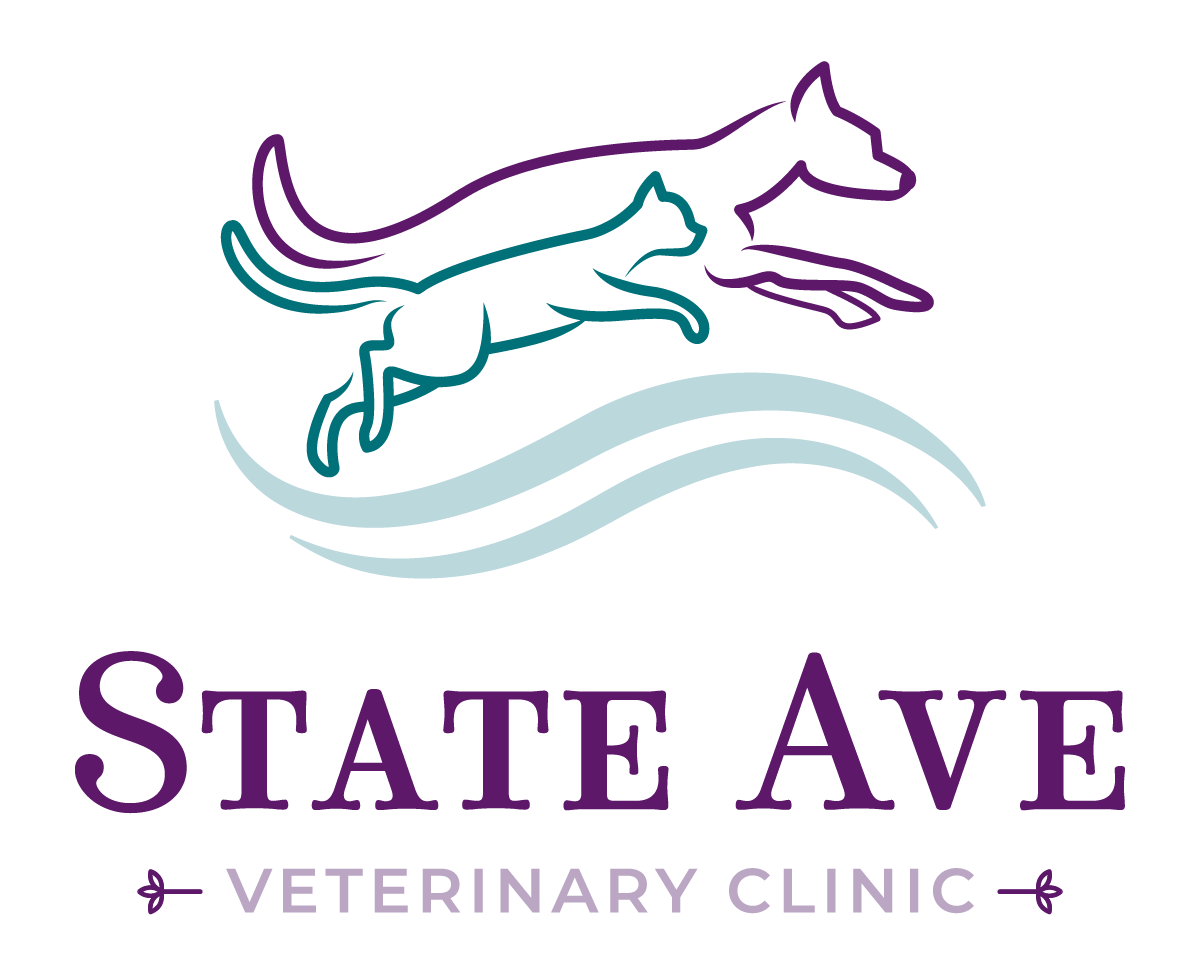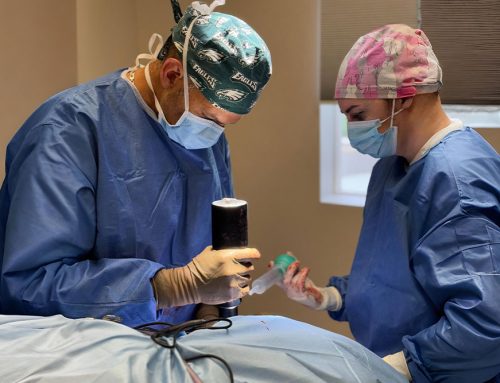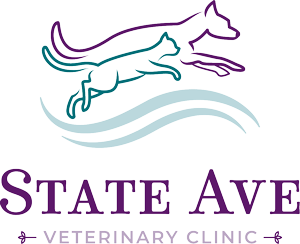Veterinary visits are critical for your pet to maintain their health, but they can often be stressful. Fear and anxiety during these visits can lead to negative associations, and providing the necessary care can be challenging. However, some strategic approaches can significantly reduce stress and ensure a more positive experience for your furry friend. Our State Ave Veterinary Clinic suggests how you can make your next veterinary visit stress-free.
Anxiety in pets
You’ve probably heard of “white coat syndrome,” an irrational fear of medical exams. Your pet can also become anxious in unfamiliar or uncomfortable situations, especially during veterinary exams when they know they will be handled in ways they don’t like. Common anxiety signs in pets include:
- Trembling
- Excessive panting
- Hiding
- Vocalizing
- Panting
- Behavior changes, such as aggression
Understanding these signs is the primary step in addressing and mitigating veterinary visit stress. Learn your pet’s fear cues, so you can discuss them with our State Ave Veterinary Clinic team.
Preparing your pet for their veterinary visit
Any new experience can be stressful for your pet, but they will acclimate and relax with practice and patience. Our team recommends the following techniques to improve your furry friend’s experience:
- Practice car rides — Cats and dogs often associate car rides with veterinary visits and become anxious as soon as the journey begins. Gradually acclimate your pet to car rides, first with short, positive trips to the park or pet supply store to get a new toy, and then gradually increase the trip duration. Reward your furry pal with treats and praise to create a positive association.
- Familiarize them with the carrier — A carrier is often necessary to transport cats and small dogs safely. Carriers, like car rides, typically happen only when needed for a veterinary appointment. To create positive associations, leave the carrier accessible at home so your pet can explore. Place treats, toys, and comfortable bedding inside to make the space welcoming.
- Schedule a drop-by visit — If your pet hasn’t been to our clinic, we recommend a friendly drop-by, so they can smell, see, and experience the clinic without the “dreaded” exam. They can also meet our staff, who will provide attention and cuddles. Once your furry pal sees that the clinic isn’t stressful, they will be less fearful in the future.
- Handle them often — Accustom your pet to being handled in ways they will likely experience during a veterinary visit. Gently touch their paws, tummy, ears, nails, and mouth regularly, and reward them for remaining calm. This low-stress handling helps reduce sensitivity to exam procedures.
- Use calming aids — Consider calming aids, such as pheromone sprays, diffusers, or collars, but never give your pet calming supplements before discussing them with our veterinarian. Also, consider an anxiety vest or wrap, such as the Thundershirt, which works by gently applying pressure to the torso. Calming products can help soothe your pet and make them feel safe and secure.
- Schedule wisely — Schedule your furry friend’s appointments during quieter times at the clinic to avoid busy waiting areas. Call our State Ave Veterinary Clinic team to let us know that your pet may be reactive with other pets. We can accommodate you and your pet’s needs by scheduling accordingly and taking your pet to a private exam room as soon as they arrive.

- Use positive reinforcement — Positive reinforcement can be used in all forms of training, whether teaching commands or encouraging calm and cooperative behavior. To use positive reinforcement techniques, bring your furry pal’s favorite treats or toys to their appointment. During and after the exam, reward them with treats and verbal praise, which will reinforce positive associations with the visit.
- Remain calm —Your pet will pick up on your emotions, which may amplify their anxiety and stress. Help your pet feel more at ease by staying calm and relaxed and speaking in a soothing tone on the way to the clinic and during their physical exam.
- Plan ahead — Consider your pet’s behavior and emotional state during their previous veterinary visit. Were they anxious during the car ride or their physical exam? Did treats as rewards distract them? Making notes can help you learn what best calms down your pet, so you can implement these tools for future visits.
- Pre-appointment medication — Some pets benefit from pre-appointment medication. Our team can describe an appropriate medication if your pet experiences significant veterinary-related stress and anxiety.
By understanding and addressing what causes your pet’s stress, you can make veterinary visits a more positive experience. Preparation, calming techniques, and a compassionate, patient approach are key to ensuring your pet is fear-free and receives the care they need. Over time, your four-legged friend may come to enjoy their visits.
Contact our State Ave Veterinary Clinic team for additional tips on low-stress veterinary visits. We want your pet to be calm and happy to see us.







Leave A Comment